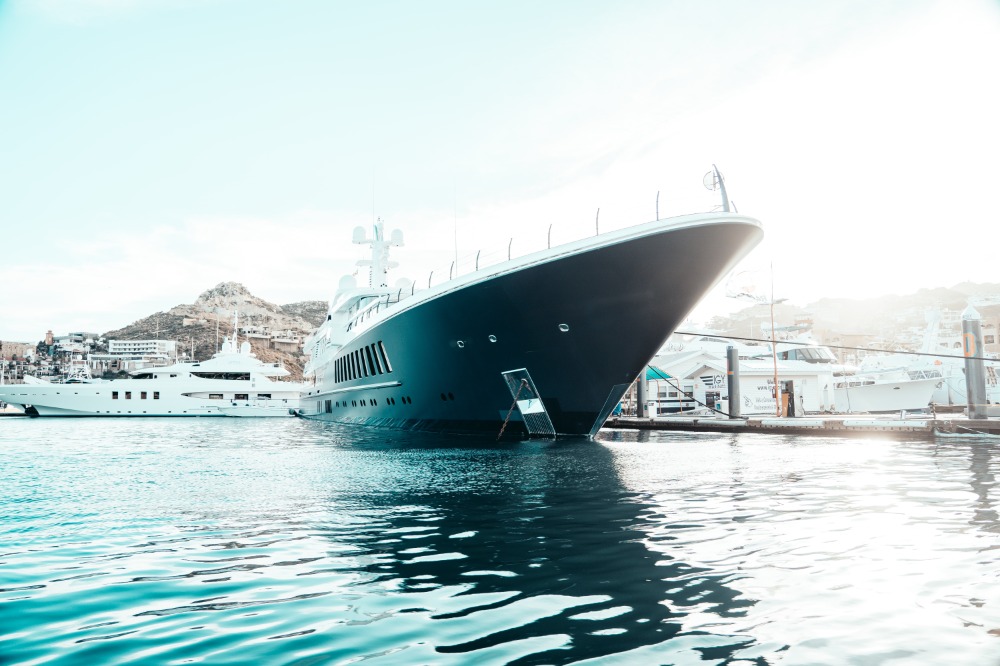Legal logistics and safety precautions for returning crew and future guests
She of the Sea webinar sheds light on these key topics…
What are the current logistics and safety precautions that must be in place for crew returning to a vessel, and for guests joining yachts for charters? SuperyachtNews attended the She of the Sea webinar to find out…
The initial argument that can be made by many is whether crew actually need to return to vessels at this time. Captains must accept a new sense of perspective regarding how many crew is ‘essential’, based on the current limitations further to the COVID-19 crisis.
“There’s still so many lockdowns in place, and the view on international air travel is not good at the moment,” began Shelley Dowie, Head of Yacht Management, Rosemont. “However, with that said we still are managing to move essential crew around to get them to vessels where needs be.
"The way we’re doing that is by either making sure crew have been in self-isolation before they travel, then depending on their mode of travel possibly putting them back into isolation upon arrival, for example, if they’ve travelled by plane" - Shelley Dowie, Head of Yacht Management, Rosemont
“The way we’re doing that is by either making sure crew have been in self-isolation before they travel, then depending on their mode of travel possibly putting them back into isolation upon arrival, for example, if they’ve travelled by plane. We’re lucky in that we have some crew based in the Mediterranean, so they can very easily jump in the car and drive to the vessel, remaining isolated during that journey,” Dowie continued.
Rosemont has also successfully put testing procedures in place where possible, for those crew who are arriving by plane. “They then go into accommodation on shore, or into an isolated cabin on board, then self-isolate there, and then if necessary, they’ve been re-tested again after 7 of 14 days,” Dowie explained.
In regard to travelling, the ITC has put in place a letter which aids travel, and Rosemont has been giving crew these letters to travel with, as well as letters from the vessel and the country in question. “There are a lot of logistics to consider, but it is possible,” said Dowie.
This topic has entered the legal sphere, in the respect that there has been some confusion over crew medical policies that provide travel extension, and some concern from crew asking ‘If I’m travelling, will I be covered by my insurance?’, according to Fiona Milsom, Managing Director, ZIS Ltd.
“Certainly, in terms of the insurers we’re working with, the answer is yes - they are covered if they need medical assistance etcetera,” Milsom explained. However, regarding the travel element, there is an exclusion and this is for flights that are booked after 11th March – when the pandemic status was announced. “Insurers are saying, if you’re booking flights after this date in the full knowledge that this virus is out there and causing problems, you need to check with the people you’re booking with e.g. flight operator or hotelier, for any claims,” Milsom added, but clarifying that the crew medical policy is still operating well, and the cover is still there.
“The key thing we’re advising is to talk to your insurers; stay in contact with them,” began William Maclachlan, Partner, HFW. “Don’t move a crewmember and then look to try and claim something. If you’re British, for example, and the Foreign Office says you should not be travelling, and then you find you’re travelling for reasons that are not actually essential, you are not covered. Travel for essential purposes, speak with your brokers, make sure they know what’s going on,” Maclachlan emphasised.
Other questions that HFW is encountering are beginning to appear more distressing, such as crew stuck in ‘X’ location, in isolation, who should now be on leave but are still there. “People are asking us, ‘Do I have to keep on paying them?’ The answer is ‘yes, you do’. They are in that location due to their employment with you,” Maclachlan explained, hinting that there are increasingly gritty employment questions arising.
“As far as insurers are concerned, the crew are travelling on ships business, and therefore they’ll be covered as usual. If they’re delayed for whatever reason then the insurers will be there to help in whatever way they can...” - Fiona Milsom, Managing Director, ZIS Ltd
“As far as insurers are concerned, the crew are travelling on ships business, and therefore they’ll be covered as usual. If they’re delayed for whatever reason then the insurers will be there to help in whatever way they can,” said Milsom. “And ultimately, crew need to be paid until they’re repatriated back home,” Dowie explained.
The panel then went on to discuss the touchy subject that is the current charter market, which has seen a spate of cancellations, based on charterers not wanting to take the risk of travelling through Europe.
“The cancellations were mainly from charterers based outside of Europe, particularly in North America,” said Maclachlan. “They then tried to claim their money back, but unfortunately it doesn’t work like that – they don’t have a right to claim force majeure. The only force majeure arrangements under the MYBA charter are in favour of the owner, and in doing so, not pay[ing] damages to the charterer.
“Right now, we have a lot of charterers hoping the world rights itself and they can enjoy their summer holiday, alongside many owners hoping the charters stay in place and they can take the income without the hassle of a cancelled charter. They are effectively playing a game of ‘chicken’ with each other...” - William Maclachlan, Partner, HFW
“Right now, we have a lot of charterers hoping the world rights itself and they can enjoy their summer holiday, alongside many owners hoping the charters stay in place and they can take the income without the hassle of a cancelled charter. They are effectively playing a game of ‘chicken’ with each other,” Maclachlan added.
It is likely that, as soon as there is more information on lockdowns, particularly from France, whose 11th May deadline may well be extended, there may be more cancelled charters as the summer-that-wasn’t starts to take shape. “We are beginning to see charterers attempting to bring claims against owners for hire, and owners trying to keep charterers on foot,” concluded Maclachlan.
"We’ve already had a ‘COVID charter’ on one of our vessels, whereby a family in the Bahamas wanted to escape a more infected area..." - Shelley Dowie, Head of Yacht Management, Rosemont
“We’ve already had a ‘COVID charter’ on one of our vessels, whereby a family in the Bahamas wanted to escape a more infected area,” said Dowie, “and we then had to thoroughly risk assess it and put the correct procedures in place.
“The family travelled under the direction of a doctor on board, and they were under his guidance taking temperatures a week before they got on board. We insisted that they all needed to be in self-isolation for 14 days before – these won’t be the guidelines moving forward but this was at the time when COVID-19 was very new – and then we made sure we had procedures in place to protect everybody.
“You have to make sure, however, when they get to the vessel they are greeted, they are limited to one driver – probably a crewmember or somebody we know has been in isolation. We have to consider non-contact greetings, and altogether a completely adjusted service. The key thing here is managing the clients’ expectations,” Dowie added.
“We need to be upfront, explain to the guest what the limitations of what’s happening are. We don’t have the facility to call and book in excursions – their charter is going to be very different from what they would normally expect. Managing expectations, communications, and then putting in safeguards to protect people, such as PPE for crew cleaning the cabins,” Dowie outlined.
Usual service will be limited in terms of drinks being left on a bar to be collected, rather than going up to a guest and serving drinks that way, and this is in order to comply with social distancing. “It’s all the little things to make sure we comply as much as possible,” Dowie concluded.
“We are trying to be as flexible and as understandable as possible. As far as charters are concerned, as long as you are complying with local legal requirements, flag, class, taking advice from those such as Shelley…the insurers are OK with this, certainly with our experience to date,” said Milsom.
"We’ve seen some bad press about insurers not paying business interruption claims, but this is because the trigger for the policy is physical damage to the yacht, which there isn’t in the case of COVID-19. Therefore, there is no cover there...” - Fiona Milsom, Managing Director, ZIS Ltd.
“In terms of cancellations of a charter, most policies don’t include loss of hire anymore,” added Milsom. “We’ve seen some bad press about insurers not paying business interruption claims, but this is because the trigger for the policy is physical damage to the yacht, which there isn’t in the case of COVID-19. Therefore, there is no cover there,” Milsom concluded.
Most importantly, for charterers considering buying cancellation cover now, you must note that this will exclude COVID-19 as the virus is no longer sudden and unexpected. Therefore, when you make the charter arrangement you’ve got to make sure you’re covered if you can’t turn up.
Profile links
NEW: Sign up for SuperyachtNewsweek!
Get the latest weekly news, in-depth reports, intelligence, and strategic insights, delivered directly from The Superyacht Group's editors and market analysts.
Stay at the forefront of the superyacht industry with SuperyachtNewsweek
Click here to become part of The Superyacht Group community, and join us in our mission to make this industry accessible to all, and prosperous for the long-term. We are offering access to the superyacht industry’s most comprehensive and longstanding archive of business-critical information, as well as a comprehensive, real-time superyacht fleet database, for just £10 per month, because we are One Industry with One Mission. Sign up here.
Related news

SuperyachtNews COVID-19 Advisory – testing for superyachts
Dr. Spike Briggs of Medical Support Offshore discusses the considerations of COVID-19 testing for superyachts
Crew
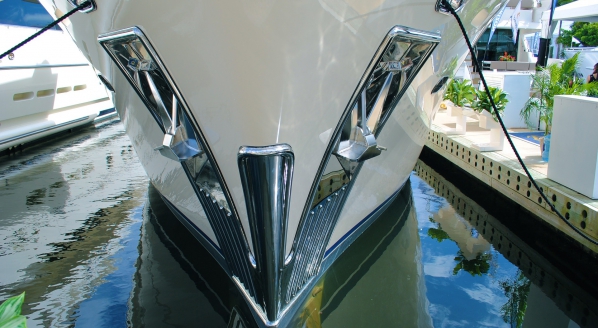
Realistic timeframes remain essential to project completion post-lockdown
SuperyachtNews investigates the impact of COVID-19 on mid-works paintjobs
Business
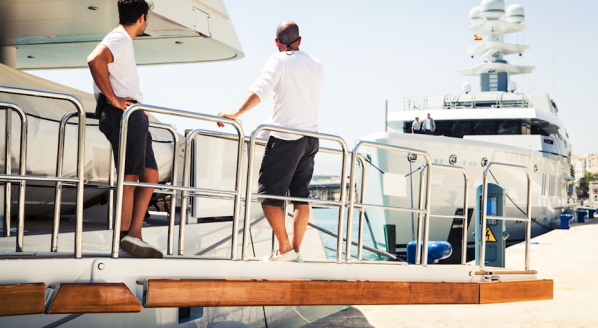
How is COVID-19 affecting crew employment?
Quay Crew undertook a survey to understand whether crew positions are in jeopardy due to the pandemic
Crew
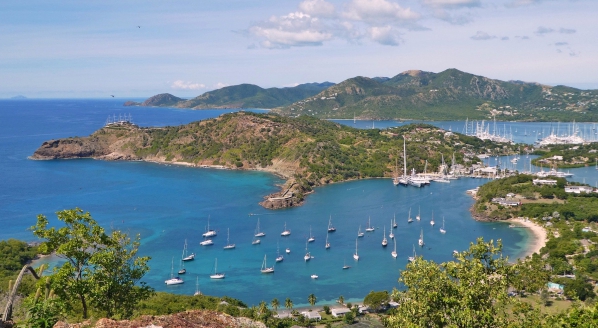
Preparing for hurricane season during a lockdown
SuperyachtNews investigates the protocol required under current conditions
Owner
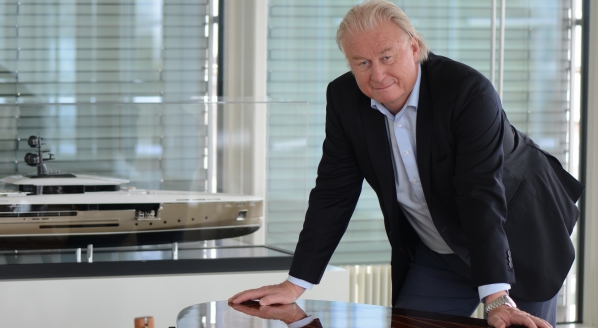
COVID-19 and the brokerage market
An interview with Ocean Independence's Peter Hürzeler about the impact of the pandemic on the brokerage market
Business
Related news
How is COVID-19 affecting crew employment?
6 years ago
Preparing for hurricane season during a lockdown
6 years ago
COVID-19 and the brokerage market
6 years ago
NEW: Sign up for
SuperyachtNewsweek!
Get the latest weekly news, in-depth reports, intelligence, and strategic insights, delivered directly from The Superyacht Group's editors and market analysts.
Stay at the forefront of the superyacht industry with SuperyachtNewsweek


